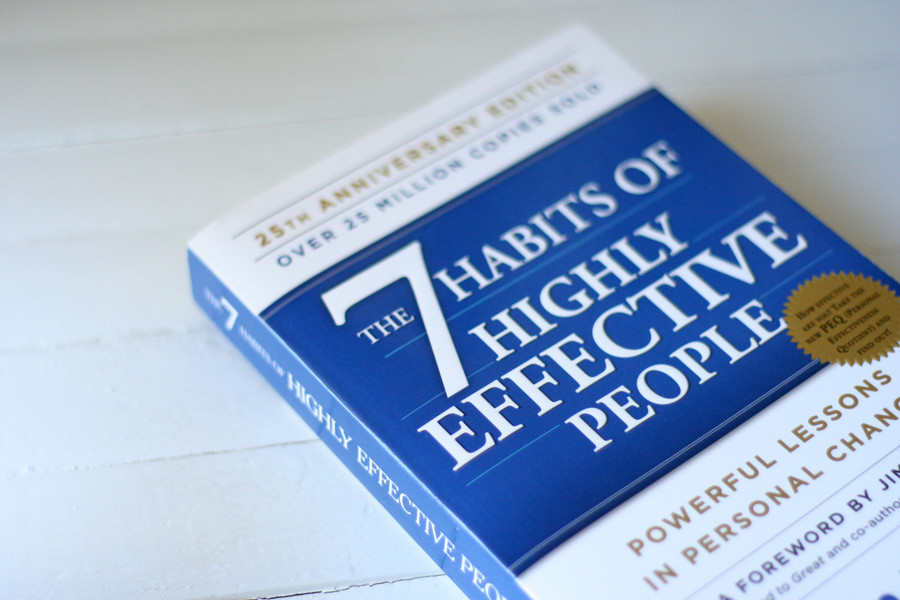“The 7 Habits of Highly Effective People” by Stephen R. Covey is a self-help book that has become a classic in the genre. First published in 1989, the book has sold over 25 million copies worldwide and has been translated into 38 languages. The book presents seven habits that Covey believes are essential for personal and professional effectiveness.
The first habit is “Be Proactive.” This habit emphasizes the importance of taking responsibility for one’s own life and actions. Covey argues that people should not be passive victims of circumstance, but should actively seek to shape their own lives. This includes taking initiative, anticipating problems, and taking action to prevent them.
The second habit is “Begin with the End in Mind.” This habit encourages people to think about what they want to achieve in the long term and to work towards that goal. Covey argues that this habit is essential for setting clear priorities and making effective decisions. He also emphasizes the importance of having a clear sense of purpose in life.
The third habit is “Put First Things First.” This habit focuses on time management and emphasizes the importance of focusing on what is most important. Covey argues that people should prioritize their tasks and activities in order to achieve their goals. He also encourages people to be mindful of how they spend their time and to avoid distractions.
The fourth habit is “Think Win-Win.” This habit encourages people to adopt a mindset of mutual benefit in their relationships and interactions with others. Covey argues that when people focus on win-win outcomes, they are more likely to build strong and productive relationships. He also emphasizes the importance of collaboration and teamwork.
The fifth habit is “Seek First to Understand, Then to Be Understood.” This habit encourages people to actively listen to others and to try to understand their perspectives before communicating their own. Covey argues that this habit is essential for effective communication and for building trust and understanding in relationships.
The sixth habit is “Synergize.” This habit emphasizes the importance of teamwork and collaboration. Covey argues that when people work together, they can achieve more than they can individually. He also encourages people to embrace diversity and to leverage the strengths of others.
The seventh habit is “Sharpening the Saw.” This habit emphasizes the importance of self-care and personal development. Covey argues that people should take time to care for their physical, emotional, mental, and spiritual well-being in order to maintain their effectiveness.
The book has been widely read and well-received by readers and critics alike, it has been named as one of the top most influential books of the 20th century by various publications. According to the New York Times, “The 7 Habits of Highly Effective People” is “A self-help book that actually helps.” Publishers Weekly called it “an endlessly useful guide to thinking about what you can do to lead your life more effectively.” The book has also been endorsed by business leaders, politicians, and other influential people.
Covey’s book is not just a theoretical work, but it is also practical and actionable. He presents his ideas in a clear, concise and easy-to-understand manner, and provides concrete examples and exercises to help readers put his principles into practice. The book is also well-researched, drawing on a wide range of sources, including psychology, philosophy, and business.
Overall, “The 7 Habits of Highly Effective People” is a comprehensive and practical guide to personal and professional effectiveness. It provides a clear framework for setting goals, managing time, and building relationships, and it is filled with practical advice and exercises that can help readers put its principles into practice. It’s a book that has stood the test of time and continues to be a best-seller and a must-read for anyone looking to improve their personal and professional effectiveness. It has proven to be a valuable resource for individuals and organizations looking to improve their performance and achieve their goals. The book’s principles have been used in a variety of settings, including business, education, and government. It’s an all-around self-help guide that can be applied to various aspects of life.
Be sure to also check out Read This: The Four Agreements.

